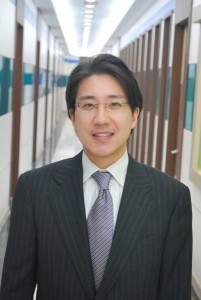
By Louis Chan
AsAmNews National Correspondent
David Kim launched his first tutoring program in a dorm room with fellow Harvard classmate Jim Narangajavana in 1997.
Two years later, C2 Education opened in Maryland at its first private location. The 37-year-old second generation Korean American has since opened 174 more outlets in 15 states.
“The whole premise of C2 is really to help students and parents navigate the whole college admissions process,” Kim told AsAmNews. His program is designed to supplement the college counseling students get in their school, where the ratio of student to counselors is often not very good.
On the day we met him at his new San Francisco location, about a half dozen students were receiving one on one tutoring. Five of the six students there that afternoon were Asian American.
“Typically in Asian countries, if you didn’t do well, you have to wait another year before you take the test again and those test scores were pretty much the end all be all of getting into the right university. That mentality has basically percolated with the children as they immigrated to the US. So you know for the Asian community, tutoring has been a way of life probably for the last 50 years.”
In the United States,the new SAT launched nationwide two week ago. The test is now more in line with the ACT and is designed to measure a student’s current knowledge rather than predict a student’s performance in college, as the old SAT was designed to do. The SAT has returned to the 1600 scoring system replacing the 2400 perfect score. Academically the new test is considered harder and more challenging than the old, according to Kim. That’s lead some Asians to speculate the SAT has been changed to limit the number of Asians admitted to top universities. Kim, himself, does not buy into that notion.
“I don’t think the new SAT is trying to discriminate against Asian students at all,” said Kim. “The more broader question is what should the criteria be for college admissions at these Ivy League colleges. Should it be strictly quantitatively based or should there be other stuff that goes into the whole application process which I think is causing a lot of controversy.”
Despite building a business around preparing for college admissions tests, Kim supports holistic admissions. As he puts it, test “scores aren’t everything.” Extracurriculars, personal statements, and letters of recommendations, he believes, are also important. He points to a recent report put out by the education school at Harvard which calls for factoring in a “caring and philanthropic feeling” as part of the admissions process.
” There’s no perfect way that’s perfectly transparent , that’s perfectly like alright, if you do X, Y & Z you can get into this school which I think frustrates a lot of parents who come from Asian backgrounds because for a lot of Asian families, it is formulaic. You get this test score, you go to this school. This outcome clearly happens. And that’s not the case in America.”
The college admissions process is ten times more stressful and competitive now, says Kim, than when he applied for Harvard in the 90s, which was already stressful. That concerns him. He calls the whole process “unhealthy” and encourages parents to care as much as their children’s mental health needs as their grades.
“Finding what you’re really passionate about is very important. You hear even Asian parents, they always talk about it, but they also talk about practicality of life. It doesn’t always have to be one or the other. You can have both.”
(AsAmNews is an all-volunteer effort of dedicated staff and interns. You can show your support by liking our Facebook page at www.facebook.com/asamnews, following us on Twitter and sharing our stories.)

If the new SAT is designed to be more in line with the ACT then there is no question that it was designed to discriminate against Asians, or at least first generation immigrant Asians with English as a second language, just as the common core curriculum was designed to do.